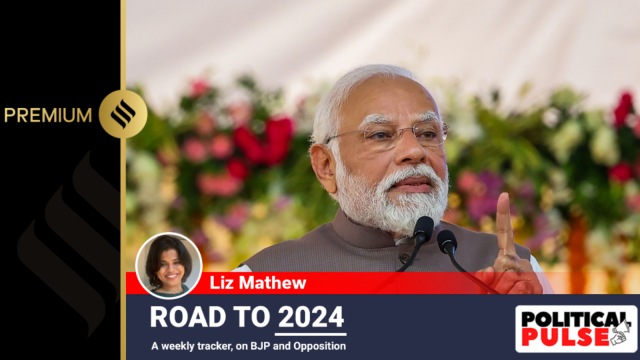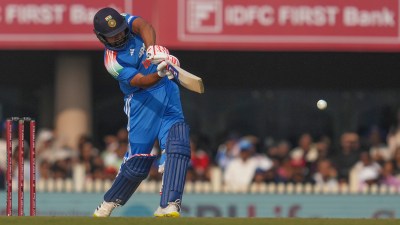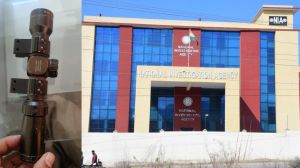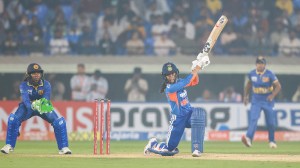The remark of the Union Minister of State for Rural Development on the floor of the House illustrates what Prime Minister Narendra Modi wants his party to highlight in the run-up to Lok Sabha elections. Post-2014, Modi and the BJP have concentrated on carving out a loyal base of party leaders cutting across caste, communal, and class lines. The strategy has worked, with this cohort of leaders contributing to the party’s electoral successes along with money power, robust organisation, and Hindutva politics.

The BJP’s push to infuse fresh blood into the leadership was reflected in its choice of Chief Ministers and Deputy Chief Ministers for Chhattisgarh, Madhya Pradesh, and Rajasthan. Mohan Yadav, a low-profile but active organisation man, was chosen as the Madhya Pradesh CM, while first-time MLA Bhajan Lal Sharma, who has a long organisation track record, was picked to helm Rajasthan. In Chhattisgarh, however, the leadership chose Vishnu Deo Sai, a familiar face in the state’s top leadership.
BJP insiders attributed the decision to spring surprises at the last minute to the top brass’s desire to choose leaders who will be absolutely loyal to it, so loyal that the RSS will have less control over them. These BJP insiders say that the word democracy has a new definition under the current dispensation. The traction the party gets for these choices and the goodwill such moves earn Modi are the biggest support base for the party, according to a leader.
“While you media people speculate about the front-benchers who give you interviews or those who are articulate, the party leadership has its eyes on the hard-working, sincere leaders who have worked silently,” said a top leader while talking about the CM and Deputy CM choices in the Hindi heartland states.
Modi who in 2017 sought a debate on internal democracy in political parties has adopted a different approach to the concept. Speaking at a “Diwali Milan” event at the BJP headquarters six years ago, the PM said: “I believe that the development of a true democratic spirit within political parties is necessary not only for the country’s future but also for democracy.”
But now the central leadership faces criticism over the “centralisation of powers”, with the top leadership in the national capital taking every minute decision and directing the state units and leaders to implement them. Many in the party feel that the “top brass is making themselves indispensable while everyone else is dispensable”.
Story continues below this ad
But other BJP insiders argued that Modi’s “democratic style” was different, emphasising the party’s non-dynastic character. They said allowing the growth of newcomers, appointing leaders from the cadre base, and recognising hardworking leaders were part of the democratic process in the party. “Look at the picks PM Modi has made in Rajasthan. Bhajan Lal Sharma is a first-timer in terms of administrative role. It is a risk and the party would have to invest in him to bring him as a good administrator,” said senior BJP leader Sadananda Gowda, the former Karnataka CM.
Like many in the party, Gowda agrees with the decision to choose a young leadership in states where it has a strong base and robust organisational network. The average age of the new picks — three CMs and six Deputy CMs — is 50 years. These leaders can take care of the aspirations of a young population. “That is the need of the hour,” Gowda said, adding that it would work in the party’s favour.
Younger MPs such as Poonam Mahajan who entered electoral politics after her father Pramod Mahajan’s demise also see it as a positive change. “The party recognising people who do not come from a political background but work hard for the party and nation-building is a positive change. It warms my heart to see my party recognise and reward people who work and contribute to the nation and the ideology of the party. It is going to be a big boost for ordinary karyakartas,” Mahajan said.
Every choice at the top level in the three states has been careful with the caste and community balancing, keeping the Lok Sabha elections in mind. While the party already has earned a major chunk of the OBC votes, by appointing Mohan Yadav it has signalled to the Yadav community that they have another leader than Bihar Deputy CM Tejashwi Yadav or Samajwadi Party (SP) president Akhilesh Yadav. In Rajasthan, the choice of a Brahmin for the top post has not only sidestepped the tension between the Gujjar, Meena and Rajput communities but also pleased Brahmins, a dedicated vote bank for the BJP that has been miffed with in recent times for its OBC focus and placing Thakur leaders in key posts.
Story continues below this ad
Party insiders said these surprising but risk-taking moves would help the party consolidate several communities under it and dodge the intensifying resentment about unemployment, price rise and anti-incumbency feelings against local leadership in the run-up to the Lok Sabha elections. “The Prime Minister always wants to connect directly with the cadre and the people. He knows his actions will have a direct impact on the people, especially the poor and the youth,” said a leader.
However, there could be unforeseen effects too, according to party leaders. While the appointment of Mohan Yadav could help the party in its attempt to break the Muslim-Yadav consolidation of Opposition parties such as SP in Uttar Pradesh and the RJD-JD (U) in Bihar, other communities could get antagonised (for example, the Kirar community to which former Madhya Pradesh CM Shivraj Singh Chouhan belongs).
While the BJP attempts to infuse fresh blood into the party, it is interesting to note that one-third of its CMs have their roots in the Congress. At present, four of the BJP’s 12 CMs have come from the Congress: Himanta Biswa Sarma (Assam), N Biren Singh (Manipur), Pema Khandu (Arunachal Pradesh), and Manik Saha (Tripura).

































